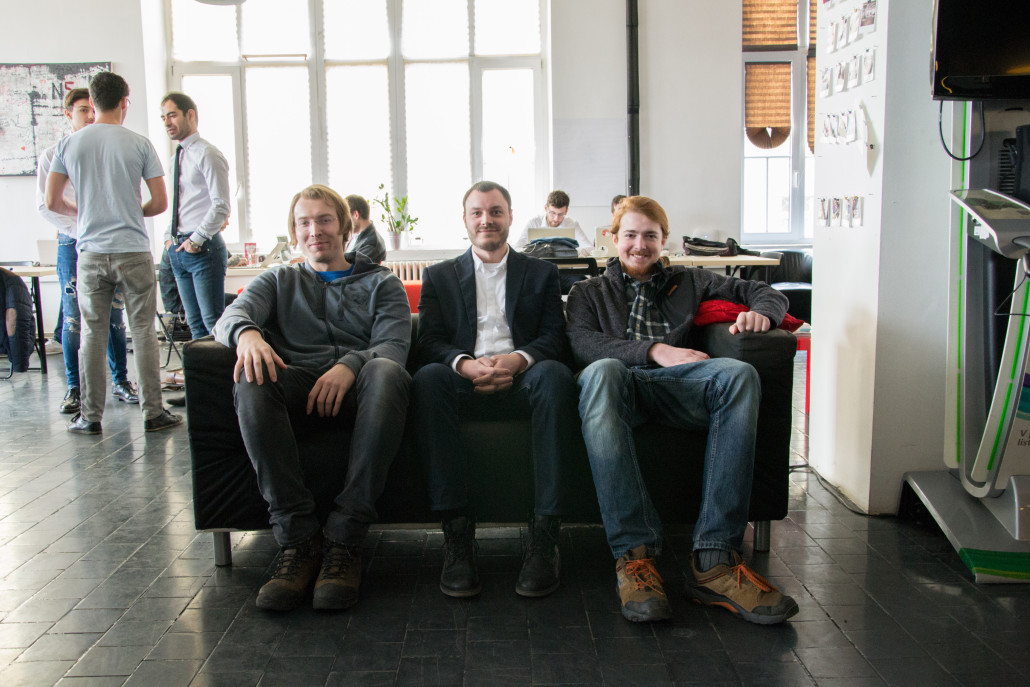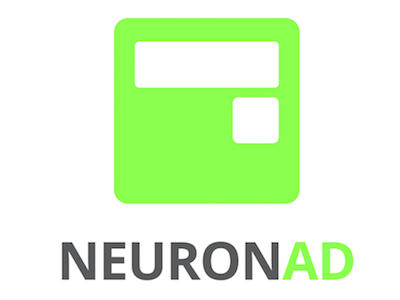NeuronAd: Ads for Everyone
Do you use AdBlock, or another ad-blocking solution? More and more, the answer to that question is yes. With the advent of adblocking for mobile, over 20% of online users now employ some form of ad blocker, and that proportion is growing rapidly.
Ads can be annoying, they often use too much data, and they can be loaded with unwanted code and invasive tracking. NeuronAd is working to reconcile the needs of online publishers, with the wishes of ordinary web users who are sick of invasive advertising on desktop and mobile. NeuronAd is a member of StartupYard 2016, and will present at our Demo Day, on April 6th.
I caught up with Karel Javurek, founder and CEO of NeuronAd, to talk to him about the state of online advertising, and his role in improving it. Here’s what he had to say:
Hi Karel, Tell us a little about yourself and NeurodAD. How did you come up with the idea?
My experience has lot to do with NeuronAD, because I’m a journalist and writer, owner of a small content website, and an entrepreneur. But i’m also a reader and i saw Adblock becoming stronger and stronger every year.
Some publishers do get a bit extreme with the number of ads on their sites, but Adblock is the opposite extreme – completely no ads. So I started thinking about that, and I realized that basically the current model of online advertising is broken.
People want content, and advertisers want impressions. But publishers have to balance these two needs, and they have a very hard time doing so. The economics of advertising are constantly pushing them to new extremes.
At some point, online ads stopped helping online publishers, and started to hurt them, and that starts to happen when the pain the ads are creating is real enough that people do something about it- like using AdBlock. And that happens essentially because the reader does not feel that their interests are aligned with the publisher. Instead, they see publishers as working for advertisers, even though they are relying on the publisher for content that they want to view.
There has to be some middle ground– a solution that can balance both sides.
Readers are ultimately the most important part of online advertising. That’s what advertisers are there for, and it’s why publishers exist. At the same time, advertising is ultimately meant to be beneficial to people. In a fundamental sense, advertising does help us to make choices about how we spend our money – and it can have a positive role in our lives.
You want to know if a product is right for you, or if something new is available, and advertising helps us learn things like that. But neither advertising nor publishing is going to work if the publisher can’t survive because half of the readers are blocking ads, and the other half are being attacked with them.
What we see today is the whole system sort of breaking down, and that’s bad for everyone. NeuronAd is set up for what I think the future of online ads is going to be– something much more sensitive to the needs and wishes of consumers.
Tell us a bit about your team as well. Who is working with you now? Are you looking for more people?
Right now we are about 8 people. As CEO I still do everything except programming, that is managed by the David Dutkovsky, our CTO. We are still mostly programmers and DevOps, but also one experienced sales pro from the US, who has worked more than 10 years in online advertising business, and led big teams of salespeople.

The NeuronAd Team, Karel in the middle.
Our business is strictly B2B, so we will need lot of sales help in order to expand. We are always looking for talented programmers as well. We are solving hard and unsolved problems, so it’s very interesting even from the architectural point of view.
NeuronAD defeats ad blockers. What’s the problem with ad blockers, considering that they are so popular?
The main problem with ad blockers is that they are too extreme – they block every ad on every page a user visit and usually, once a user installs them, they never uninstall them. Possibly over 20% of internet users now use some form of ad blocker, whether or not such technology is really needed to enjoy online content. In most cases, they simply aren’t necessary.
Making quality content isn’t free, and i think everyone who use adblock, knows this. Ads are a great solution for a free internet, and they work not only for publishing, but also for Google, Facebook and a lot of other online companies and startups.
Some publishers are greedy, honestly, and they deploy too many ads, pop-ups and so on. But that in itself is an extreme situation, for which all publishers are being punished. We are trying to help conscientious publishers who display useful, relevant ads that are not obtrusive- as it should be.
Ads that are tasteful and well placed can add value to a reader’s experience. That is the kind of thing we want to support with our technology.
Can you talk a bit about how NeuronAD’s technology works? How does it get around Ad blockers?
Our solution gets around any type of blocking software in a browser- desktop or mobile – and can also get past adblocking on the network level, where it’s normally hard to do. So we can offer publishers a future-proof solution for the next generations of adblocker, not just the ones on the market today.
We do that by detecting when an adblocker is being used, and rebuilding that page with code the adblocker doesn’t recognize, delivering an “ad-lite” experience that an ad-sensitive user should find acceptable.
It’s a better alternative than, for example, barring ad-blocked users from visiting the site at all, as more and more publishers, such as Forbes, now do.
We’re building NeuronAd from the ground up, to tackle ad blocking technology where it will be two, three, or even five years from now.
We can also easily update our solution, so if there is any problem with any type of new adblocker, we will be able to patch our technology quickly, and publishers don’t need to take any action.
Will NeuronAd have any effect on website visitors who are not using ad blockers?
No. NeuronAd only affects users who are employing ad blocking technology. For typical visitors, NeuronAd has no effect on their experience, and nothing is changed at all.
Part of our mission is to change the business of online advertising by rewarding fair actors. Part of this is our firm commitment not to spy on or collect private data about site visitors. Much of what has driven people to adopt ad blockers has been privacy concerns, and with good reason. We want to encourage publishers to respect the privacy of their readers as well.
What is NeuronAd’s relationship with advertisers or ad networks?
Our backend can be connected to different ad networks and clients, so we can provide extra inventory for an advertiser, even on big websites and reaching people who don’t usually view ads.
The number of people with ad blockers grows at about 40 % every year. There are more than 200 million people with some kind of adblock installed, and that will double in the next few years. On some websites, the number of users with ad blocking software is now higher than 50%, and this puts a powerful strain on publishing as a viable business online.
How do you plan to grow in the coming 6 months to a year?
We are a global startup, and our reach is not limited by geography or language. We hope to be in the US within the next year – that’s an obvious market to tackle, and it is where much online advertising is focused.
We’re piloting the solution with a few Czech websites right now, and we hope to be serving ads very soon.
Long term, what do you hope NeuronAD’s role will be in the online advertising market?
Our goal is to make the internet a better place for all involved – for publishers, readers, and advertisers. Publishers and advertisers can forget that readers are the real customer, so we focus on them quite a bit, providing an ad-light experience (less advertisement), more privacy (less tracking), more security (ads link check), and better performance (faster loading times, less data to download).
How has your experience at StartupYard shaped the company going forward? Are there any particular mentors who had an outsized impact on your development?
The experience with StartupYard has been fantastic. It’s accelerating every part of our project and we’ve had great feedback and contacts from a huge number of mentors. Every mentor is useful in some way, even if they’re from different market or segment. Sometimes even a small idea or feedback from a different point of view can shape your service or product to be much better.
If I’m forced to name names, then Jan Urban, Andrej Kiška, Aleš Teska, and Viktor Fisher are examples of really important mentors for us. But in truth, there are many more who have played vital roles in shaping our development, and we are grateful to all of them.
Are you currently looking for launch partners and early customers? How can people find out more?
We are looking for good partners from publishers and ad networks, that want be relevant in the future. More information is on our website Neuronad.com and you can also send email to info@neuronad.com. On our twitter page we are trying to cover new thing in the world of adblocking.




